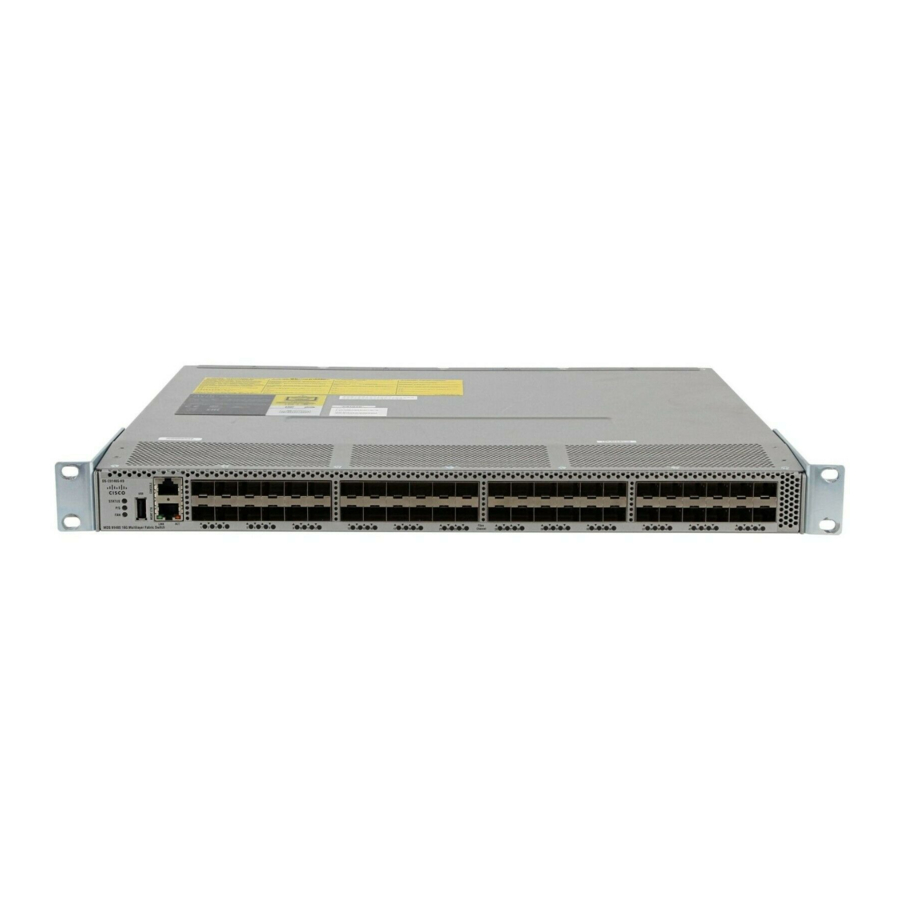Reduced total cost of ownership (TCO)—Common platform architecture and the use of Cisco MDS 9000
●
SAN-OS Software intelligent storage-networking services across all Cisco MDS 9000 family switches reduce
ongoing operating expenses by providing a consistent set of provisioning, management, and diagnostic
capabilities.
Figure 1.
Key Features and Benefits
Exceptional Flexibility and Scalability
The Cisco MDS 9124 offers up to 24 autosensing Fibre Channel ports capable of speeds of 4, 2, and 1 Gbps in a
compact 1RU form-factor chassis. With 4 Gbps of dedicated bandwidth for each port, the Cisco MDS 9124 is
designed to meet the performance and scalability requirements of the most demanding environments.
The flexibility of the Cisco MDS 9124 is provided by the Cisco MDS 9124 On-Demand Port Activation License, which
allows expansion in 8-port increments. Customers can start with a base configuration of 8 ports and can upgrade
onsite to 16 and 24 ports using these licenses. With advanced storage networking capabilities built into the platform,
it is an ideal choice both as a standalone departmental SAN switch and as an edge switch in enterprise core-edge
SANs.
The Cisco MDS 9124 includes hot-swappable, Small Form-Factor Pluggable (SFP), LC interfaces. All SFP interfaces
are 4, 2, and 1 Gbps, with autosensing capabilities. Individual ports can be configured with either short-or long-
wavelength SFP optics for connectivity up to 500 meters (m) and 10 kilometers (km), respectively.
VSANs for Segmentation and Isolation
VSAN, an industry standard for fabric virtualization capabilities, allows more efficient storage network use by creating
hardware-based isolated environments within a single physical SAN fabric or switch. Upto 16 VSANs are supported
per switch. Each VSAN can be zoned as a typical SAN and maintains its own fabric services and management
domains for added scalability and resilience. VSANs allow the cost of SAN infrastructure to be shared among more
users, while helping ensure segregation of traffic and retaining independent control of configuration on a VSAN-by-
VSAN basis.
Advanced Traffic Management for High-Performance, Resilient SANs
Advanced traffic management capabilities integrated into the Cisco MDS 9124 simplify deployment and optimization
of core edge fabrics.
Virtual output queuing helps ensure line-rate performance on each port, independent of traffic pattern, by
●
eliminating head-of-line blocking.
Each port group consisting of 4 ports has a pool of 64 buffer credits, with a default of 16 buffer credits per
●
port. When extended distances are required, up to 61 buffer credits can be allocated to a single port within
the port group. This extensibility is available without additional licensing.
© 2009 Cisco Systems, Inc. All rights reserved. This document is Cisco Public Information.
The Cisco MDS 9124
Data Sheet
Page 2 of 9

